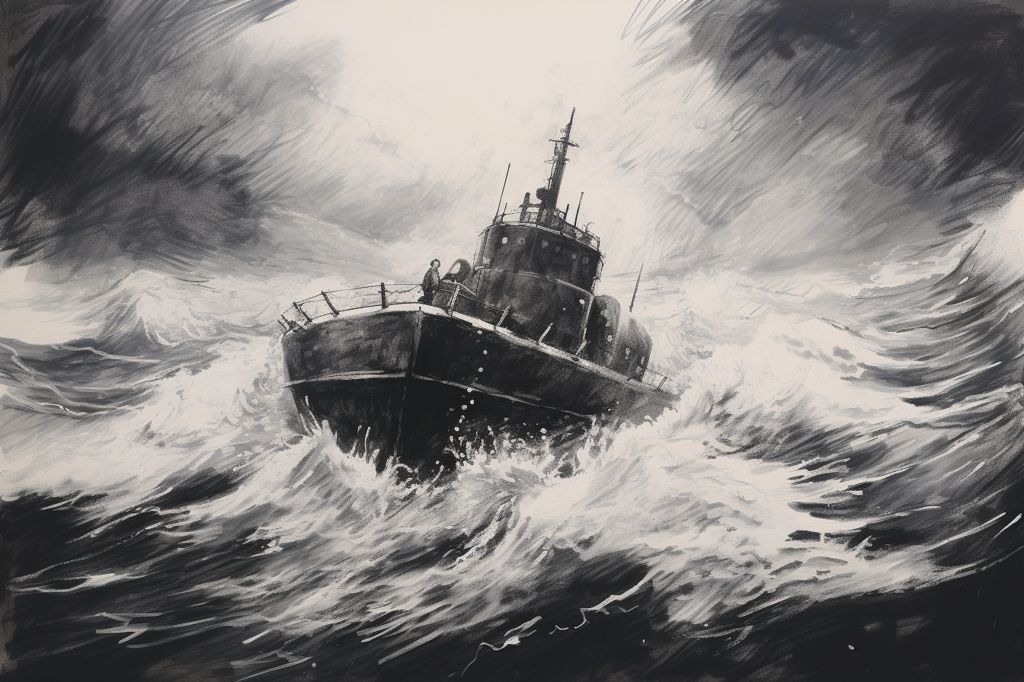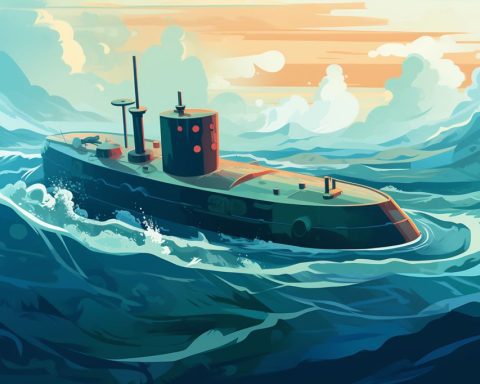Remembering Africa’s First Female Submarine Navigator
Lieutenant Gillian Malouw will be celebrated as a maritime industry pioneer, making her mark as the first woman to navigate a submarine in Africa. However, her promising career came to a sudden halt during a recent submarine operation in Cape Town. On a tragic Wednesday in Kommetjie, three Navy crew members, including Malouw, perished in a devastating accident. The South African National Defence Force (SANDF) has since launched an inquiry to examine the details of this incident.
As reported by IOL, the SA Navy submarine SAS Manthatisi was traveling to Cape Town and carrying out a vertical transfer with the SA Air Force Maritime Lynx helicopter. Regrettably, towering waves swept seven crew members out to sea amid the vertical transfer operation. The planned VERTREP (Vertical Replenishment) procedure was instantly halted, and rescue attempts were initiated to retrieve the crew members. A surface swimmer was sent from the helicopter to aid in the rescue mission.
The SANDF revealed that the rescue mission encountered substantial obstacles due to the turbulent sea conditions at the time. Following the emergency, a distress call was made to Cape Town Radio, leading to a swift deployment by a team from the National Sea Rescue Institute’s Kommetjie station. Despite their attempts, three crew members, including Malouw, could not be saved. A senior officer remains critically injured, and the remaining members, along with the surface swimmer, are currently receiving medical treatment.
Charting Malouw’s Maritime Career
Malouw’s journey at sea began in Grade 7 when she first encountered the Navy. This early experience guided her to become a sea cadet and ultimately led her to enlist in the Navy after finishing her education. She was assigned to the Simon’s Town naval base, committing her life to the maritime industry. In a conversation with Cape Talk, Malouw disclosed her ambitions to accomplish significant milestones in her naval profession. Her enthusiasm and determination for the maritime realm were apparent.
Following her unexpected death, a family member, Bronwyn Nel, turned to social media to express the influence of Malouw’s life. She wrote, “Your loss will be felt for years to come because you left your mark on this world and in everyone’s minds and lives, my girl.” Indeed, her groundbreaking achievements and unwavering spirit serve as a source of inspiration for aspiring female mariners across the African continent and beyond.
As we memorialize Lieutenant Gillian Malouw, it’s vital to acknowledge her contributions to the maritime industry and the opportunities she created for future generations of women. Her legacy will continue to motivate and empower others as they chase their dreams in the naval realm.
Learning from Tragedy: Safety in Maritime Operations
In Malouw’s memory, it is essential to contemplate the significance of safety precautions and protocols during submarine operations and other maritime activities. The catastrophic accident that took Malouw’s life stands as a solemn reminder of the risks and challenges mariners confront as they traverse the unpredictable and often merciless waters of our vast oceans.
As we pay homage to this trailblazing figure in the maritime world, let us also extend our deepest sympathies to the family, friends, and fellow Navy personnel who had the honor of knowing and loving her. Lieutenant Gillian Malouw’s life and accomplishments will be forever etched in the annals of maritime history, and her pioneering spirit will continue to inspire future generations of seafarers, particularly women, to strive for greatness and break new ground in the demanding and gratifying world of the maritime industry.












